In April, Canadian Salvationists Jahred and Jessica Warkentin took up roles as program co-ordinator and development officer in the Bangladesh Territory. Over the coming months, they will share their experiences and prayer requests in this blog for Salvationist.ca.
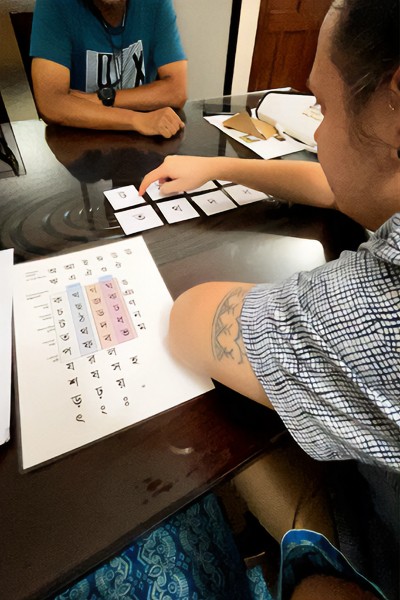
Nomoshkar shobai, amar naam Jessica. Ami Canada theke-esechi. Ami amar shami shonge teen maash age Bangladesh-e eshechi… Ami aam pochondo kori. Ami dud cha pochondo kori. Amra Bangla shikchi. Ami shudhu ektu Bangla-e bolte pari, tai ekhon English-e kotha bolbo.
Since we arrived in Bangladesh, my wife, Jessica, has kicked off many events introducing herself with some variation of these sentences. It translates to, Hello everyone, my name is Jessica. I am from Canada. My husband and I arrived in Bangladesh three months ago. I like mangoes. I like milk tea. We are learning Bangla. I can only speak a little Bangla, so now I will speak in English. At that point, a translator usually jumps in and helps lead the session. We are learning Bangla (albeit slowly), which has helped us connect with officers, soldiers, co-workers and the general public—especially when we share parts of ourselves.
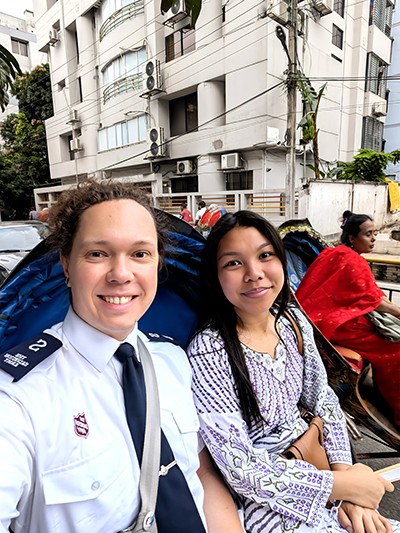
Jessica has been especially blessed by our arrival during mango season. While I don’t particularly care for the orangey-yellow-fleshed fruit, Jessica has made it known that she will eat her weight in mangoes if given enough time. We have a mango tree outside our apartment, and people have dropped off mangoes from their home villages for her to try, borro (big) and choto (small) size. One co-worker sent 15 kilograms of mangoes by courier for her to enjoy, and on her way back from a trip to North Bengal, the van made a special stop so Jessica could buy another five kilograms to bring home. Mangoes have become a staple of our first three months in Bangladesh.
One special thing about mango trees is that they are slow to bear fruit. Mango trees, when grown from seed, do not generally bear fruit for five to eight years and, in some circumstances, even longer. They spend a considerable amount of their early years establishing a root system and reaching a certain level of maturity before finally flowering and producing the beautiful holud ebong golapi phul (yellow and pink flowers) and sweet fruity flesh. Each time I look at a mango, I think of the history of the tree that produced it.
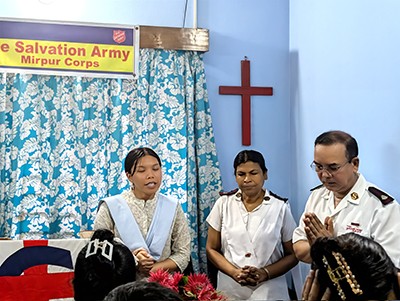
Jessica and I have been in Bangladesh for nearly six months now. As many in ministry can relate, our roles have taken shape in ways we didn’t expect. These months have brought us to many ends of the territory. In my role as program co-ordinator, I have run men’s ministry workshops, facilitated a youth consultation at the training college, led local officer’s workshops, conducted corps assessments, and even went to the Alpha regional gathering in Malaysia. As development officer, Jessica has led two mission awareness seminars, a project management council, headed many project expenditure boards, visited all the project offices, spoken at a junior home league rally, and attended a knowledge management workshop with one of our donors in Nepal.
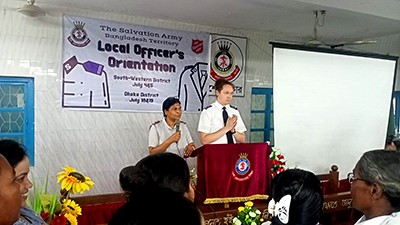
Amid this work, we continually try to deepen our footing into Bangladeshi life by learning Bangla on our own time and exploring the city. This is perhaps the most difficult part of doing ministry in a culture apart from your own. We can choose to treat it like a 9-to-5 job; clock out and try to live a life without engaging the community, separate from the local culture. But to truly reach the people we are serving, we need to put in the work to lay roots in the place we serve. Without this, we are simply fulfilling a contract and will leave Bangladesh without indulging in the fullness Christ has to offer here.
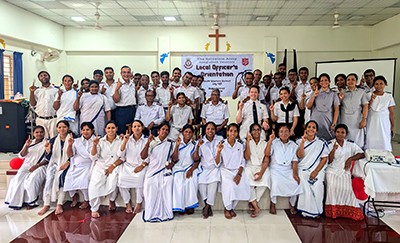
Our primary focus alongside “formal ministry” has been learning Bangla. We have found it a huge gift, and feel it is a paramount part of establishing ourselves here.The Bangla language is a very important part of the Bangladeshi identity, and the blood shed for the right to speak it is memorialized across the country. As simple as it may be, being able to say ami aam pochondo kori (I like mangoes) has given us an incredible amount of respect within the community. We recognize that fluency is not within our grasp over the next three years as part-time students, but it is one large tap root that will embed us in community and bring water into the fruit we bear. We are grateful for the opportunity to document our experience in Bangladesh through this publication and look forward to sharing more with our Salvationist family back home.
Prayer Requests
- That we would have the energy to focus on language learning outside of our busy work schedules.
- Good health, as many at the office are sick and COVID cases are rising in Dhaka.
- For our final visas to be processed in time.
- That new discipleship initiatives would take off in youth and corps ministries.
- For the many new relationships we are making within The Salvation Army, with other NGOs and churches, and the public at large.
Praise Reports
- We have remained relatively healthy.
- Our quarters are becoming more like home.
- We have been able to visit many areas across the country in our short time so far.
- The weather is starting to cool with the rainy season approaching.




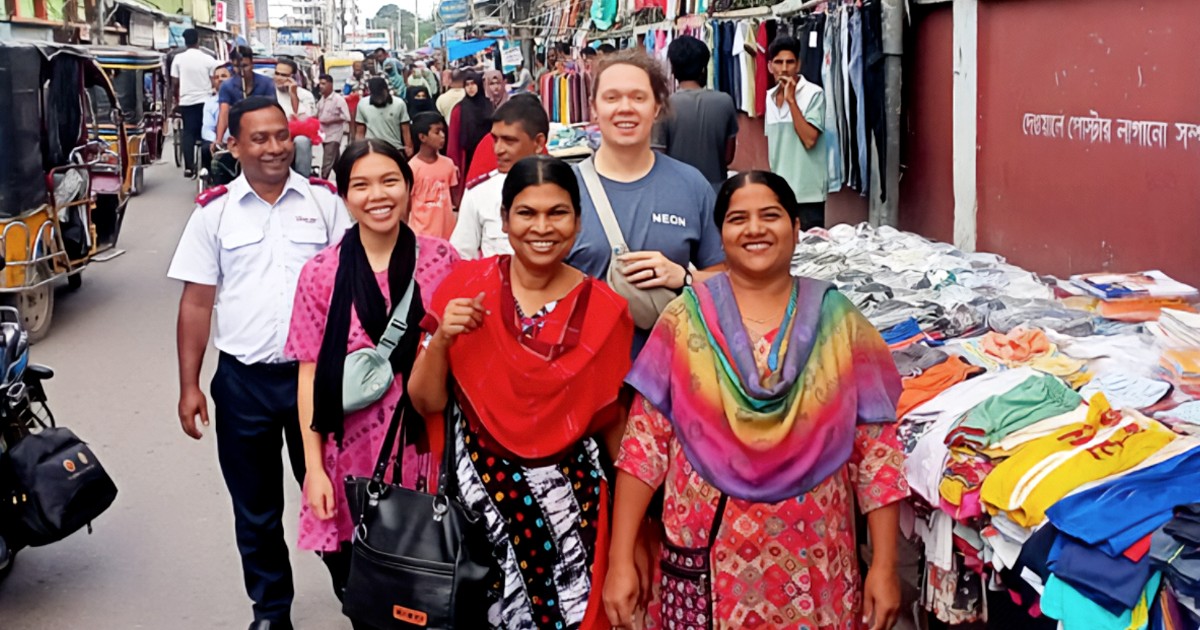





So interested in your ministry in Bangladeshi. Will keep both in my prayers. May God give you strength, wisdom & courage to do all that you want to achieve & bless you both in all you do. Amen